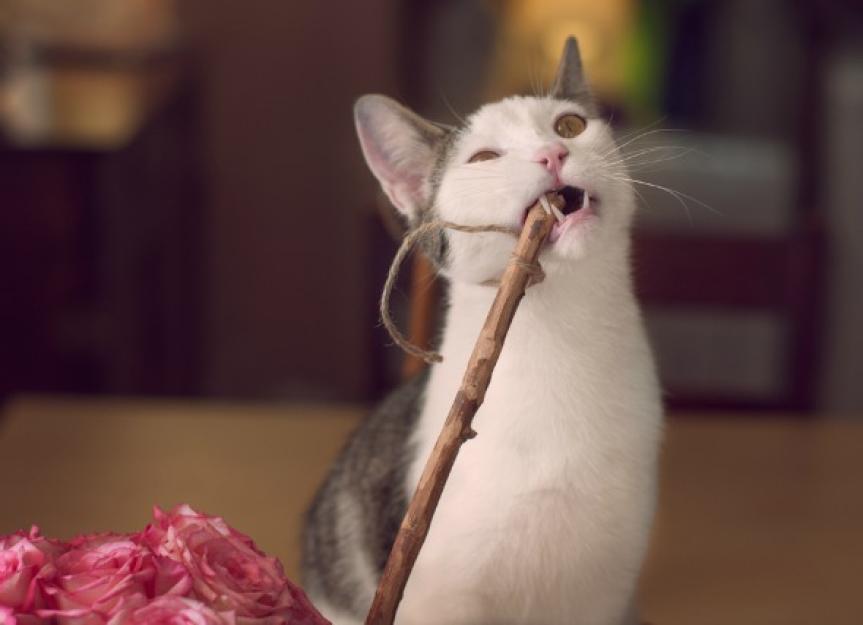Ingestion of Feces and Foreign Objects in Cats
Coprophagia and Pica in Cats
异食癖是一个医学问题指的是一种渴望non-food items and the subsequent eating of them. Coprophagia is the eating and ingesting of feces. Generally, neither of these conditions are the result of an underlying disease, but may be the result of a mineral or vitamin deficiency. Fortunately, there are treatment options in these types of cases, or behavior modification practices that can be implemented if it is a non-threatening issue.
Symptoms and Types
You may observe your cat eating dirt, clay, rocks, soap, or other items that can endanger the animal’s health. The largest organ system that is affected by this behavior is the gastrointestinal tract, especially if foreign objects are being swallowed. You may notice that the animal is vomiting, has loose stools, or hasdiarrhea. There may be weakness and lethargy in the animal.
Causes
There are several possible reasons for why an animal would eat feces or other non-food items, including malnutrition, vitamin deficiency, increased appetite, or conditions such as diabetes or thyroid disease. Parasites, too, can be another of the causes for this behavior.
Sometimes an animal will eat its feces if there are remaining undigested articles of food in the stool. Mothers with newborns will also commonly eat the feces of their newborns; this is a normal part of their grooming behavior. As such, puppies may also eat feces as an observation of the mother's behavior, or as part of exploration. In addition, an animal may eat feces as a response to recent punishment, to attract attention, because it desires to clean its environmental area, or because it is hiding its mistake.
Medical Causes:
- Inflammatory bowel disease
- Diabetes
- Intestinal parasites
- Anemia
- Increased hunger
- Neurological disease
- Vitamin deficiency
- Malnutrition
- Thyroid disease
Diagnosis
Your veterinarian will need to distinguish between medical and behavioral causes. will need to begin by giving a thorough history of your pet's health and recent activities. A complete blood profile will be conducted, including a chemical blood profile, a complete blood count, and a urinalysis. If it is not due to a medical condition, your veterinarian will need a full history on your cat, including its diet and appetite, handling practices, and information about its environment. This will assist your veterinarian in developing a proper treatment plan.
[video]
Treatment
Treatment will depend on whether the underlying cause is medical or behavioral in nature. For instance, if it is behavioral in nature, your veterinarian may recommend changing your cat's environment, or using forms of behavior modification, such as a muzzle. Limiting access to any non-food items in the home may also be necessary if it proves to be too difficult to prevent your cat from eating inappropriate items.
Living and Management
Follow up is recommended during the first few months following initial treatment of the animal.
Prevention
Prevention of this type of behavior will require limiting your cat's access to non-food items, or applying a bitter or pungent taste to such items to discourage regular consumption or chewing. Keeping your cat's living areas clean, and disposing of waste promptly, will also bar access to feces.
In addition, dietary needs must be organized so that you can be sure that your cat is being supplied with all of its vitamin and nutritional needs, and that it is being eating the required amount of food.

